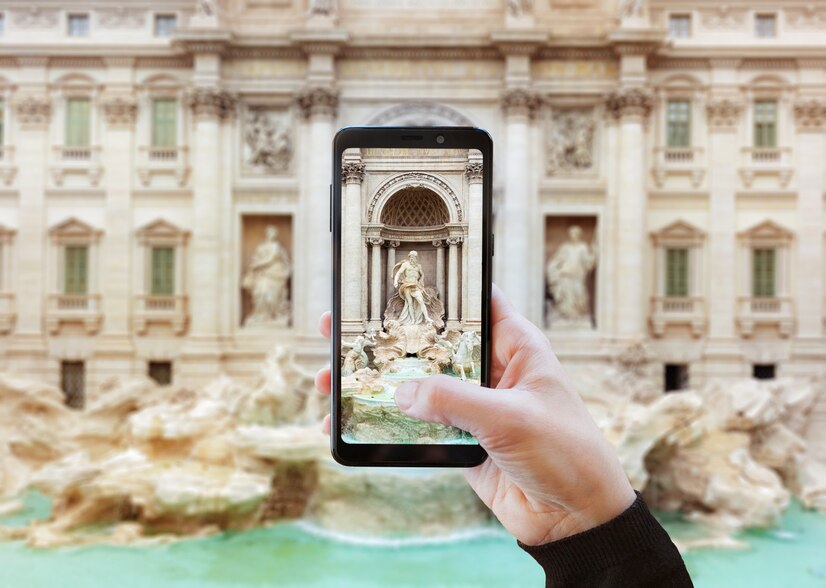The polls are in, and social media has officially changed travel as we knew it. This is only natural, as social media has practically taken over so much of our lives over the past decade. From humble beginnings, with forums and message boards, to Myspace, and now TikTok and Instagram, among many others, taking the main stage — Social Media seems to be here to stay.
Can someone keep count of how many times I use the word ‘social media’?
But, how exactly has it changed travel? Has it changed the destinations we are visiting? The food we are eating? Who we are meeting along the way? Those are a lot of questions to unbundle, yet in this article we are going to attempt to tackle them to the best of our ability, while also touching on other elements of how social media has changed the travel world for good. The central theme of this article shall be looking into areas that are currently trending on social media while looking into the reasons these destinations have gotten such a big boost recently.
Faro, Portugal – Sharing Is Caring

Although Portugal itself has been a popular tourist destination for longer than social media has existed, it has seen a recent boost lately. An uptick in bookings have occurred in Faro thanks to its very Instagrammable architecture. Social media sites have been snapping and sharing pictures of the beautiful buildings in Faro, including its age-old churches, and coastal destinations. It has been speculated that sharing countless pictures online, has persuaded other travellers to visit the region. Even tags, such as “best transfers from Faro airport” have seen businesses receiving many more bookings.
At face value, it definitely seems that social media is facilitating the advertisement of both sightseeing, as well as business, all created by users, rather than professional advertisers. The entire concept of “user-generated content” has been popularized in academia, with researchers looking into how the advertising sphere has rapidly changed with the advent of social media. Although we won’t go into detail, there are countless resources discussing this topic, which are well worth a read.
Dubai, UAE – Globalization On Steroids
Before the advent of social media, spectacle and excessive decadence were slightly more tame – this has definitely taken a U-turn since social media landed in Dubai. The interconnected world fostered by globalization has enabled the seamless movement of people, resources, and ideas, allowing Dubai to position itself as an international hub for commerce, culture, and leisure. Social media platforms have acted as powerful amplifiers, showcasing the city’s iconic skyline, luxurious resorts, and diverse attractions to a global audience. Instagram-worthy images of towering skyscrapers, pristine beaches, and opulent shopping centres have ignited wanderlust and shaped travellers’ perceptions of Dubai as a glamorous destination.
Furthermore, the rapid dissemination of travel experiences, reviews, and recommendations through social media has facilitated the rise of Dubai as a trending hotspot, enticing millions of visitors to explore its unique blend of tradition and modernity. In this dynamic interplay between globalization and digital connectivity, Dubai has brilliantly leveraged its unique offerings to become a compelling and alluring destination for tourists from every corner of the world.
Thailand – Influencers And Authentic Local Experiences

Travel influencers have played a pivotal role in making Thailand a popular tourist destination by showcasing its stunning landscapes and cultural richness. However, this influx of influencers and tourists has also brought with it a number of challenges, including issues of overtourism, environmental impact, the building of countless resorts and hotels to meet demand, and cultural commodification. While influencers definitely contribute to Thailand’s popularity, it’s crucial to address these negative consequences to ensure the long-term sustainability and authenticity of the country’s appeal.
Although we are closing on a more sobering note, it is imperative that we, as users of the internet and social media, look into both sides of the spectrum. The internet is one of humanity’s most useful inventions, allowing people from all over the world to connect with each other, share experiences, and motivate and grow together; yet, when looking closer, there are apparent a number of downsides, with creativity, genuineness and the simplicity of what makes us curious humans seems to fade away.
With the bombardment of information we currently have to deal with on a daily basis, it is difficult to locate what’s real. Look deeper. Deeper than social media, and there you will find the truth.
Read Also:
- How to Gain Followers on TikTok: Tips and Tricks
- What Is A Social Media Calendar? How To Use It?
- What Are Tiktok Coins? – How Does It Work? How To Earn It?
The post Social Media: Where Will The Virtual Travel Wind Take Us? appeared first on Social Media Magazine.

